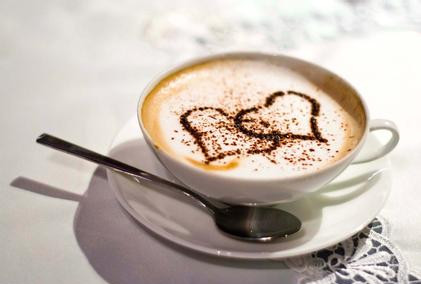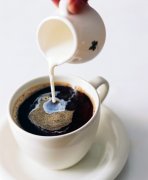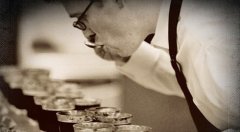The coffee producing area of Jamaica.
Almost everyone in Jamaica knows that Blue Mountain Coffee is the most expensive coffee in the world. In 1725, Sir SirNicholasLawes brought the first Blue Mountain Coffee species from Martinique to Jamaica and planted them in the St.Andrew area.

Coffee producing areas in Jamaica:
Today, St. Andrew is still one of the top three producing areas of Blue Mountain Coffee, while the other two are Portland and St.Thomas.
Today's Blue Mountain area is a small area with a planting area of only 6000 hectares, and it is impossible to grow all the coffee marked "Blue Mountain" there. Another 12000 hectares of land is used to grow two other types of coffee (non-Blue Mountain Coffee): Alpine Top Coffee (HighMountainSupreme) and Jamaican Premium Coffee (PrimeWashedJamaican).
The real Blue Mountain Coffee is one of the most advantageous coffee growing conditions in the world. The weather, geological structure and topography of Jamaica provide a unique ideal place. The ridge across Yatoujia extends to the east of the island, and the Blue Mountains are more than 2100 meters high. The cool weather, foggy weather and frequent rainfall reconcile the rich land of Rain Water. Here people use mixed planting to grow coffee trees next to banana and avocado trees on terraces.
Some small estates also grow Blue Mountain Coffee, such as WallenfordEstate, SilverHillEstate and AtlantaEstate in J.Martinez. Even the largest landowners in the region are small-scale growers by international standards, many of whom are small landowners whose families have been working on the land for two centuries.
The characteristics of Jamaican coffee:
The best Blue Mountain Coffee is undoubtedly one of the best coffees available. This kind of coffee tastes more expensive than it looks. If you want to taste its best flavor, you must put in more coffee beans than when drinking other coffee, otherwise the flavor will not live up to the name. So the real cost of reflecting the flavor is that it costs 10% more than the price of coffee, which is second only to it. 15% more coffee beans.
The real Blue Mountain Coffee is made from the best local raw coffee beans. Its flavor is rich, balanced, fruity and sour, and can meet people's various needs. In addition, the flavor of high-quality fresh Blue Mountain coffee is very long-lasting-lingering aftertaste. Blue mountain coffee is divided into five grades: blue mountain, blue mountain, selected round grain blue mountain, blue mountain.
Flavor: very full-bodied, with long-lasting fruit flavors
Suggested baking method: medium baking
★★★: excellent
The market for Jamaican coffee:
Blue Mountain Coffee is one of those coffee retailers that value credibility to stock some coffee no matter what. A leading British retailer said: regardless of the price, he will continue to sell Blue Mountain coffee all year round because he has many customers who only recognize "Blue Mountain".
Now, 90% of the post-harvest Blue Mountain coffee is bought by the Japanese. Now that the rest of the world can only get 10% of the output of Blue Mountain coffee, regardless of the price, blue mountain coffee is always in short supply. In the UK, LangfordBrothers Brothers has been the only supplier for many years. Later, the Edmunds Group (EdmondsGroup) also received a supply from Jamaica's Salda Food Company (SaldaFoods).
The difference in transportation between Blue Mountain Coffee and other coffee is that it is transported in barrels with a capacity of 70 kilograms, a replica of Bonifieur barrels produced in Guadeloupe in the last century. The barrel was originally used to carry flour shipped from the United Kingdom to Jamaica, usually with a trademark and the name of the manufacturer. The Coffee Industry Council issues certificates for all authentic Jamaican coffee and bears a stamp of approval before export.
The Jamaican government used to insist that all Blue Mountain coffee is roasted in Jamaica to ensure that the quality remains the same. In fact, baking is a fine art, and it takes experience, training and expensive equipment to do a good job. From the consumer's point of view, coffee beans should be obtained and drunk immediately after baking. Coffee roasting in Jamaica is unlikely to meet this requirement. Now, raw coffee beans from Jamaica can be exported.
At present, the Jamaican coffee shop on the market can issue certificates for all exported Blue Mountain coffee.
There are three types of certificates:
1) Certificate of quality issued by the Jamaican Coffee Agency
2) authorized sales certificate issued by Blue Mountain Coffee manufacturer.
(blue Mountain Coffee is distributed by 4 processing producers licensed by the Jamaican government and exported by 16 licensed exporters)
3) Certificate of origin of Jamaica Blue Mountain Coffee
The quality certificate indicates the time and quantity. The Jamaica Coffee Bureau randomly selects a package from the Blue Mountain Coffee for inspection, and issues a certificate if the conditions of the Blue Mountain Coffee are met.
Important Notice :
前街咖啡 FrontStreet Coffee has moved to new addredd:
FrontStreet Coffee Address: 315,Donghua East Road,GuangZhou
Tel:020 38364473
- Prev

Global coffee production Ethiopia coffee production
The coffee tree originated in Ethiopia, where it was originally a wild plant, and the name coffee comes from the Ethiopian town of Kaffa. Humans probably knew how to cultivate coffee trees as early as the 9th century. Ethiopia's coffee growing area: Ethiopia's many coffee trees are still wild plants, this coffee tree grows coffee particles full
- Next

Global Coffee producing area in Yemen
Before the 6th century AD, Yemen was called Arabia, so coffee trees shipped from Yemen to other places were also called Arabian coffee trees. But the origin of these trees is Ethiopia. Yemen is the first country in the world to produce coffee on a large scale as a crop. Today, coffee farmers in Yemen still use the same method to produce coffee as they did 500 years ago.
Related
- Beginners will see the "Coffee pull flower" guide!
- What is the difference between ice blog purified milk and ordinary milk coffee?
- Why is the Philippines the largest producer of crops in Liberia?
- For coffee extraction, should the fine powder be retained?
- How does extracted espresso fill pressed powder? How much strength does it take to press the powder?
- How to make jasmine cold extract coffee? Is the jasmine + latte good?
- Will this little toy really make the coffee taste better? How does Lily Drip affect coffee extraction?
- Will the action of slapping the filter cup also affect coffee extraction?
- What's the difference between powder-to-water ratio and powder-to-liquid ratio?
- What is the Ethiopian local species? What does it have to do with Heirloom native species?

